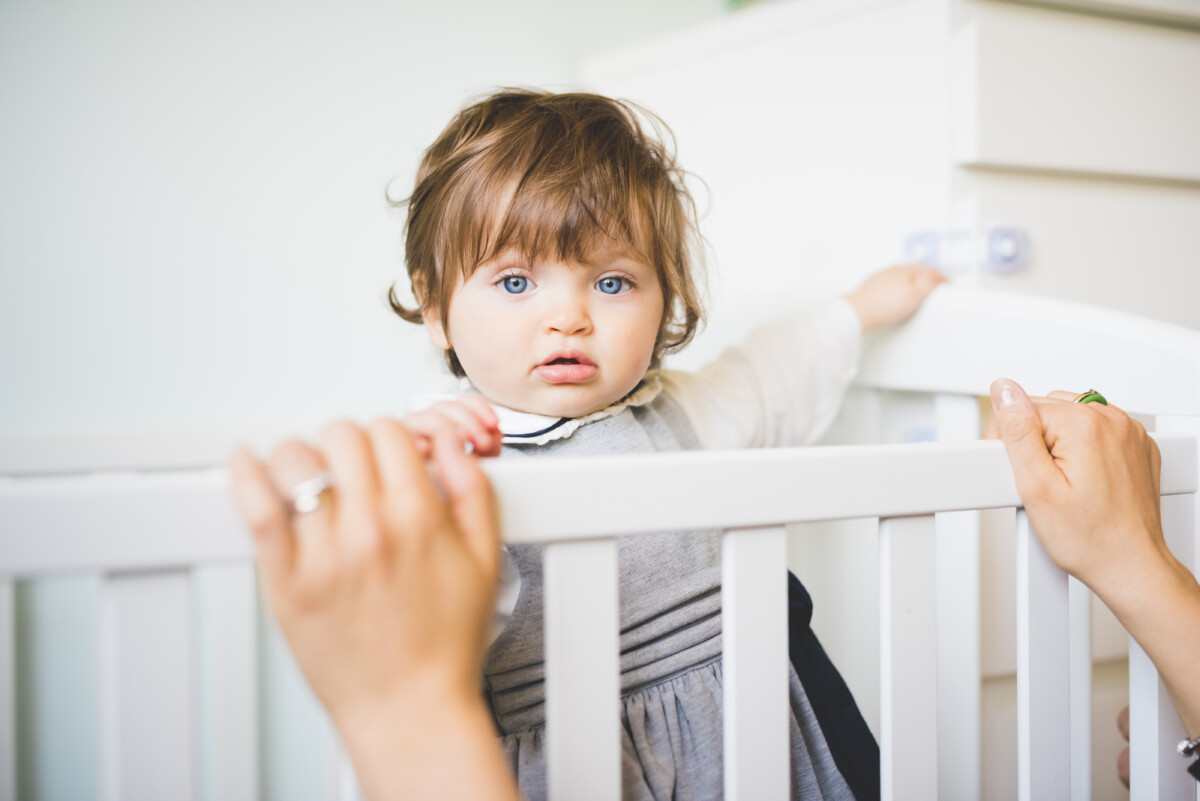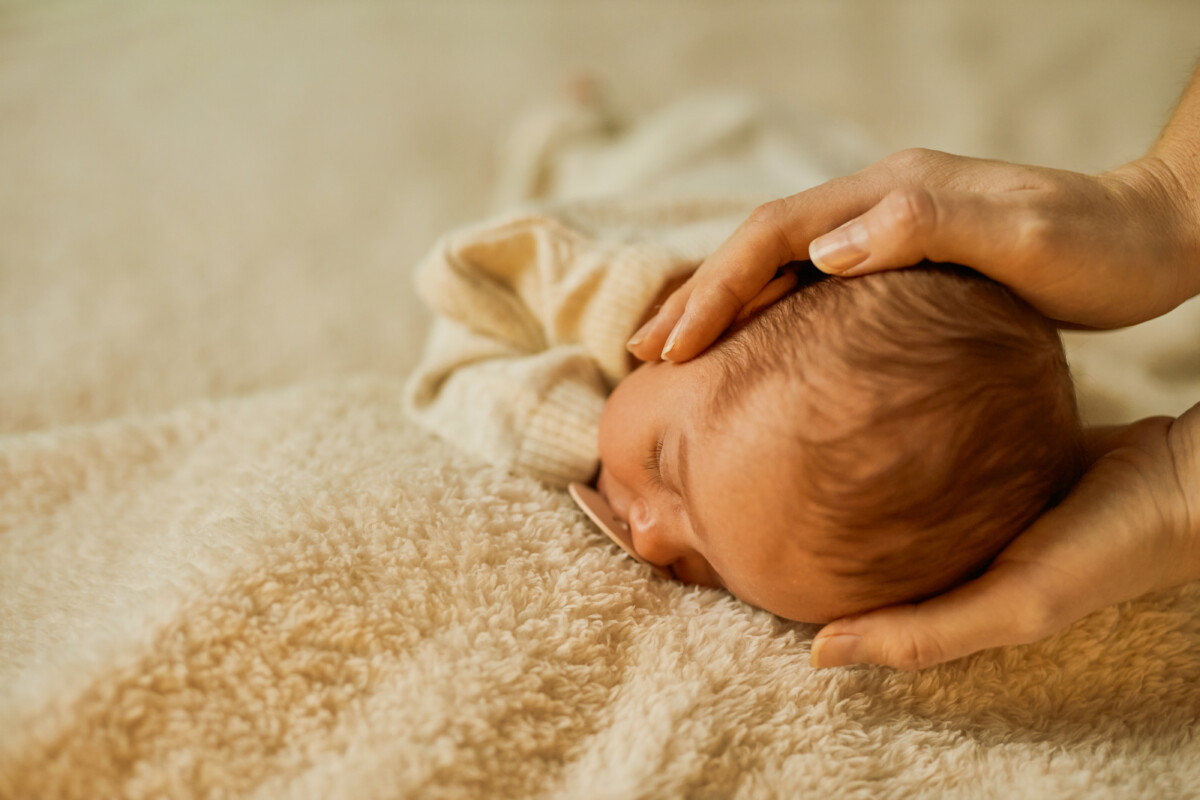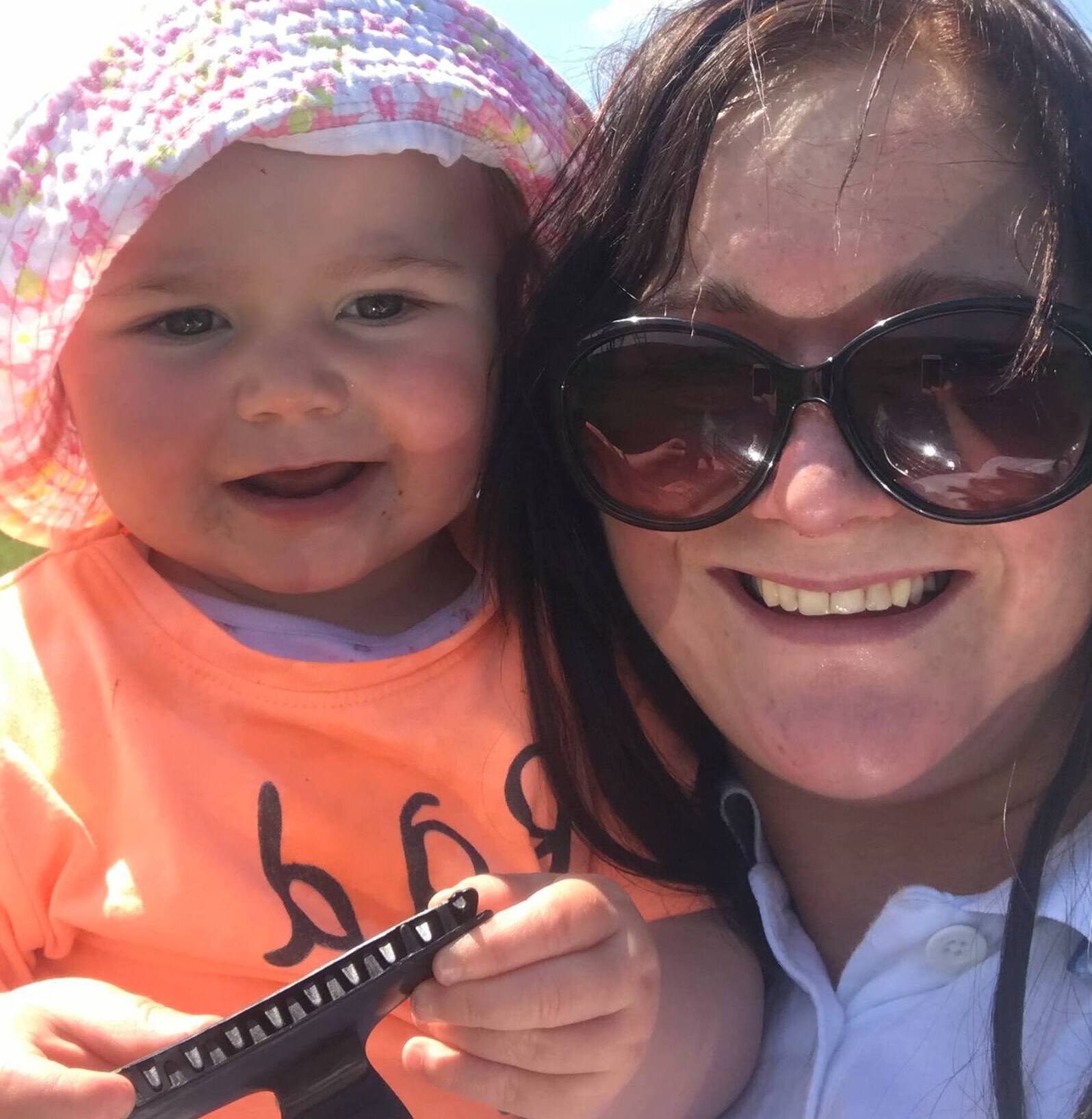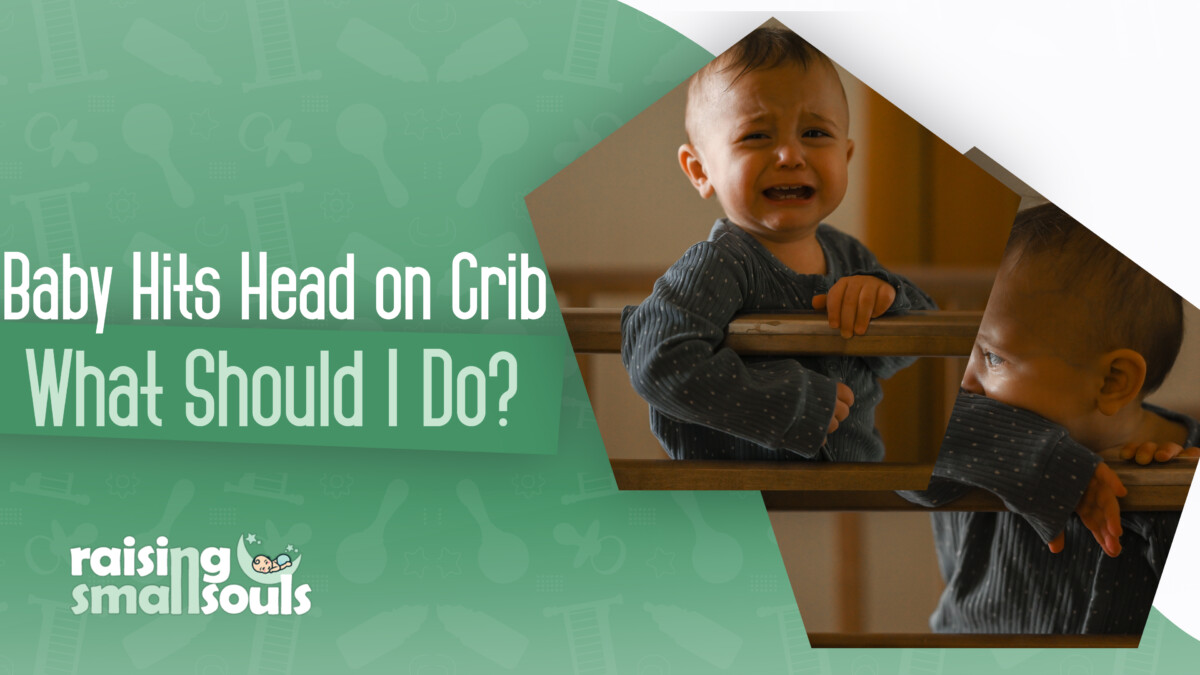Newborns don’t move around, but once your babies are five or six months old, they come with their own traits, and to be honest, there is a lot of uncontrollable movement.
As a parent myself, I’ve dealt with many issues, and one of them is my baby hitting their head on the crib.
So, your baby hits the head on the crib? What should you do? In this article, I will tell you everything related to that, of course, the main and most important things, the things you should do!
Main Points
- Babies hitting their heads on the crib is a pretty common thing many parents worry about.
- Never panic when your baby hits their head! Instead, find ways to help them!
- There are a few home treatments you as parents can do to help your baby.
- If there is blood or something uncommon like vomiting or loss of balance, seek medical help!
- If your baby isn’t comfortable in their crib, you can change it while choosing bigger ones.
What Can I Do If My Baby Hits Their Head on the Crib?

Even If you are there in front of your baby when he or she hits the head on the crib, the first thing to know is that you shouldn’t panic in any way! Instead, you should help them, especially if any injuries occur.
When babies are sleeping their movements are indeed uncontrollable and they can move around, especially if the crib is too big for them. They get used to the space they have and when free, they go near the parts of the crib that can damage them.
Yet again, always remember to not panic, it is the first thing you can do to help them and help yourself too.
Also Read: Great Baby Swings for Small Spaces.
Check for Lumps
After your baby has had a small “fight” with the crib they sleep on, it is better to check out whether there is any lump on their head, otherwise known as Goose Egg. If there is one, you should put a cold cloth on the specific place where the goose egg has appeared.
You can use an ice pack covered on a towel and put it on the lump and have it there for ten to fifteen minutes. Because babies don’t want to stay in one place, you can have it there for five minutes but every half hour.
The cold tends to completely reduce lumps overall and since a baby’s skin is more sensitive, you can be sure that the lumps appear quicker but also get out of there quicker.
Home Treatments
Everything I mentioned above includes home remedies or treatments that parents can do, but if a lump is not the case, you can do some other things to calm your baby.
So, if your baby is crying too much after hitting their head on the crib, which is quite normal, you should have something in mind to take their mind off of what happened.
Just hold your baby until they calm down. They basically calm down in the arms of their parents and you can help your child a lot if you do so! After all, your baby will think something is wrong only if you think something is wrong, but if you do not panic and try to make the baby laugh instead, they’ll stop crying eventually.
If there is some slight bleeding in their head, take a super-clean cloth and hold it on the head of the baby while giving some pressure. Try it for five to ten minutes and the bleeding should definitely stop. But this is the case if the injury looks minor, if it looks more severe, I recommend you take your baby for a proper examination.
Medical Emergency
It is essential to mention that you should check out whether the baby is bleeding in any part of the head, if they vomit continuously, if they lose balance, and if they are unconscious for some minutes.
If any of the three things mentioned above occurs to your baby when it hit the head in the crib, what you can do is seek emergency help and even go to the nearest hospital.
Also Read: What’s The Difference Between Travel Crib and Pack n Play
How to Prevent Babies Hitting Their Heads on the Crib?

First and foremost, you should definitely know that your baby hitting the head on the crib isn’t something you should be too much worried about. It is a common “issue” many parents deal and it is super common to happen.
Now, there are some things or activities you can do in order to prevent this problem and protect your babies’ heads from anything that might happen.
Put a Blanket or Pillows
If the crib surfaces are too strong for your baby, you can freely put some blankets or pillows around. Make sure they are not too fluffy and they don’t occupy the whole place for the baby because that’s when another problem may appear.
Babies need their space in the cribs so they can move freely when awake and while sleeping as well.
Upgrade to Another Crib
A reason why your baby can hit the head on the crib is sometimes that the crib is too small for them. If this is the case, something to do is to choose a bigger crib for your child because they are growing up quite quickly.
Make sure to find a crib with extremely big measurements, so the space won’t be something you should worry about.
I have bought my baby a bassinet instead of a crib, and I want to share with you that I use the Mika Micky Baby Bassinet. It is a bedside sleeper in which my baby is quite relaxed and there is no way he hits the head.
Also Read: What’s The Thing That Hangs Over A Baby Crib?
Final Words
Some babies don’t quite move when they stay in a crib meanwhile some others do move quite a lot. However, hitting the head on the sides of the crib is a normal and common thing many babies deal with, so the best thing to have in mind is that there is no need for panic.
Once the baby has hit the head on the crib, there are ways to help, and you shouldn’t really worry about it because it isn’t too serious.
Yes, if there is bleeding take your baby to the hospital for a proper examination.
I hope that in the article you read you have found all the information you needed relating to a baby hitting their head on the crib! Good luck!

Hi! I am Kimberly, living in Huntington, NY. I’ve raised 4 beautiful children, and i started this blog to help new and upcoming mothers with parenting.

